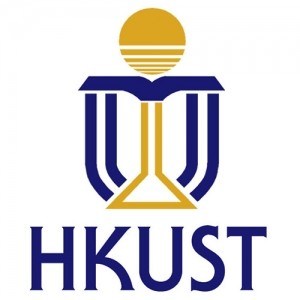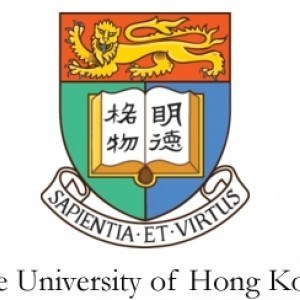Photos of university / #hkust
The Bachelor of Engineering in Chemical and Biomolecular Engineering at The Hong Kong University of Science and Technology is a rigorous and comprehensive undergraduate program designed to equip students with fundamental and advanced knowledge in the principles and practices of chemical, biochemical, and biomolecular engineering. This interdisciplinary curriculum integrates core engineering science with subjects related to chemical processes, biological systems, and environmental sustainability, preparing graduates for diverse careers in industry, research, and academia. Students will learn about process design and control, thermodynamics, transport phenomena, reaction engineering, and process safety, as well as specialized topics such as biotechnology, nanomaterials, and sustainable energy solutions. The program emphasizes hands-on laboratory work, teamwork, and project-based learning to foster practical skills and innovative problem-solving abilities. Students are encouraged to participate in internships, industry collaborations, and research projects to gain real-world experience and professional insight. The program also incorporates training in modern tools and software used in process simulation, data analysis, and process optimization, ensuring graduates are well-prepared for the evolving technological landscape. With a strong foundation in engineering principles and a business-oriented mindset, graduates will be capable of designing, optimizing, and managing chemical and biomolecular processes that are safe, efficient, and environmentally responsible. The HKUST Chemical and Biomolecular Engineering program aims to produce versatile engineers equipped to contribute to advances in healthcare, energy, environmental protection, and manufacturing sectors globally. Upon completion, students will be prepared to pursue further studies or professional careers in various fields, including pharmaceuticals, petrochemicals, food processing, biotechnology, and sustainable development, making a positive impact on society through innovative engineering solutions.
The Master of Philosophy (MPhil) program is a research degree program and students are required to complete at least 12 credits of PG courses, with at least 6 credits in Chemical and Biomolecular Engineering. Full-time students must take CENG 6800 Chemical Engineering Seminar every semester, and present at least one seminar during their degree study. They must pass CENG 6800 three times, including once in the semester when they present their seminar. Part-time students must take and pass CENG 6800 at least once in the semester when they present their seminar.
In addition to the 12 credits, full time students must complete LANG 5001 Postgraduate English for Academic Purposes. Student may be exempted from taking LANG 5001 with the agreement of the Department Head and PG Coordinator. In addition, students must complete a thesis in order to demonstrate their competence in engineering research. If the student participates in an industrial project and writes a thesis on a work-related topic, the thesis will be supervised jointly by a fauclty member of the Department and a representative from the participating company.
Nanotechnology Concentration
In addition to the program requirements specified above, students who opt for the
Nanotechnology concentration are required to:
- Take one NANO course;
- Complete NANO 6010 for one semester. They can use NANO 6010 to replace
one semester of registration of CENG 6800; and - Conduct research in nano area.
Energy Technology concentration
In addition to the program requirements specified above, students who opt for the
Energy Technology concentration are required to:
- Take one ENEG course;
- Complete ENEG 6010 Advanced Topics in Energy Technology for one term.
They can use ENEG 6010 to replace one term of registration of CENG 6800;
and - Conduct research in energy area.
Requirements
- Applicants for admission to the postgraduate programs normally should have completed a first degree in chemical engineering or a related field and should have a proven record of good performance. The student must demonstrate basic knowledge in chemical engineering. Qualified students may be admitted directly to the PhD programme.
- Students whose native language is not English must also demonstrate sufficient command of English. These students are encourage to take appropriate courses offered by the Language Centre.:TOEFL-iBT 80, TOEFL PBT 550, IELTS Overall score: 6.0
- Officially certified academic transcripts of undergraduate studies (and postgraduate studies, if any);
- Two letters of recommendation;
- A one-page statement of plan for postgraduate study, and
- A completed postgraduate admission application form.
The Bachelor of Science in Chemical and Biomolecular Engineering at The Hong Kong University of Science and Technology offers various financing options to support students throughout their studies. The university is committed to making education accessible and affordable for talented students worldwide. Students can benefit from a range of scholarships, grants, and financial aid schemes designed to lessen financial burdens and promote academic excellence.
Merit-based scholarships are available for outstanding students and are awarded based on academic achievement, leadership qualities, and extracurricular involvement. These scholarships often cover partial or full tuition fees, providing significant financial relief. Additionally, the university offers financial aid packages and emergency grants to students facing unforeseen financial difficulties. These are aimed at ensuring that capable students are not deterred from completing their education due to financial constraints.
The university also participates in government-funded financial assistance programs, including the StudentFinance Scheme, which offers loans to eligible students to cover tuition and living expenses. Such schemes often require demonstrating financial need and are administered with transparent criteria to ensure equitable distribution of resources. For international students, the university provides various external scholarship opportunities and work-study programs, allowing students to gain practical work experience while earning income to support their studies.
Furthermore, the university’s Career Center and Student Support Services team provide guidance on applying for external scholarships, fellowships, and industry sponsorships. Students are encouraged to explore these opportunities early in their studies to maximize potential funding. The university maintains collaborations with industry partners and alumni networks, which sometimes offer sponsorships and internship opportunities that include financial support.
In summary, The Hong Kong University of Science and Technology offers a comprehensive array of financial assistance options for students enrolled in the Chemical and Biomolecular Engineering program. Through scholarships, government schemes, external funding, and work-study opportunities, the university strives to ensure that financial barriers do not impede talented students’ pursuit of their academic and professional goals.
The Bachelor of Engineering in Chemical and Biomolecular Engineering at The Hong Kong University of Science and Technology offers a comprehensive curriculum designed to equip students with a strong foundation in chemical principles, process engineering, and biomolecular science. The programme emphasizes both theoretical knowledge and practical skills, preparing graduates for careers in chemical manufacturing, pharmaceuticals, biotechnology, energy, environmental protection, and related fields. Students undertake core courses in thermodynamics, fluid mechanics, heat and mass transfer, reactions engineering, materials science, and process control, alongside specialized coursework in biomolecular engineering, biochemical processes, and sustainable energy systems. The curriculum integrates laboratory work, group projects, and industry internships to foster hands-on experience and real-world problem-solving abilities. Students are encouraged to develop innovative thinking, teamwork skills, and entrepreneurial mindsets through a variety of project-based and experiential learning opportunities. The programme benefits from state-of-the-art laboratories, research facilities, and collaborations with industrial partners, providing students with exposure to the latest technological advances and industry practices. Graduates are well-prepared to pursue advanced degrees or enter the workforce as chemical or biomolecular engineers, process engineers, or research scientists. The university also offers support services such as career counseling, professional development workshops, and networking events to facilitate employment opportunities post-graduation. The programme’s curriculum is periodically reviewed and updated to align with technological developments and industry requirements, ensuring students receive relevant and cutting-edge education. Overall, the Bachelor of Engineering in Chemical and Biomolecular Engineering at HKUST combines rigorous academic training with practical experience, fostering innovation, sustainability, and leadership in the chemical and biomolecular sectors.

